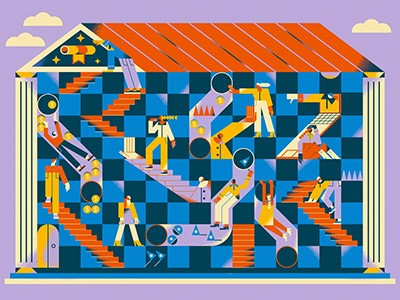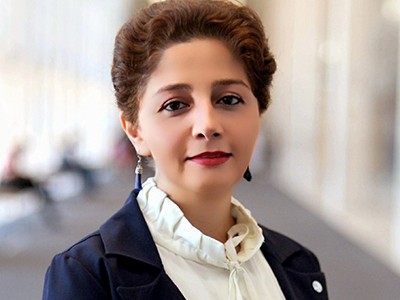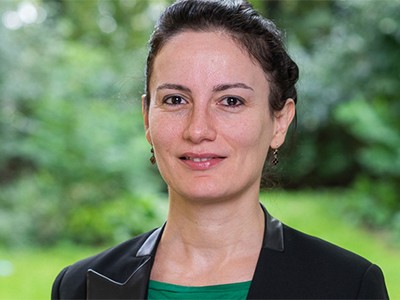For the reason that launch of the chatbot ChatGPT in late 2022, there was frantic debate at universities about synthetic intelligence (AI). These conversations have centred on undergraduate educating — easy methods to stop dishonest and easy methods to use AI to enhance studying. However a quieter, deeper disruption is unfolding in analysis, the opposite core exercise of universities.
A doctoral training has lengthy been seen as the head of educational coaching, an apprenticeship in authentic considering, vital evaluation and unbiased enquiry. Nevertheless, that mannequin is now beneath stress. AI is not only one other analysis device; it’s redefining what analysis is, how it’s completed and what counts as an authentic contribution.
How cash, politics and know-how are redefining the PhD expertise
Universities are principally unprepared for the size of disruption, with few having complete governance methods. Many lecturers stay targeted on the failings of early generative AI instruments, similar to hallucinations (confidently acknowledged however false data), inconsistencies and superficial responses. However AI fashions that have been clumsy in 2023 have gotten more and more fluent and correct.
AI instruments can already draft literature critiques, write refined code with human steering and even generate hypotheses when supplied with knowledge units. ‘Agentic’ AI techniques that may set their very own sub-goals, coordinate duties and be taught from suggestions characterize one other leap forwards. If the present trajectory continues, we’re quick approaching a second when a lot of the traditional PhD workflow could be accomplished, or no less than be closely supported, by machines.
Unanswered questions
This shift poses challenges for educators. What constitutes an authentic contribution turns into unclear when AI instruments produce literature critiques, purchase and analyse knowledge, and draft thesis chapters. College students may have to pivot from executing analysis duties to framing questions and interrogating AI outputs.
To discover what the close to way forward for analysis coaching may appear to be, I carried out a task play simulating a PhD pupil working with a hypothetical AI assistant. I used Claude, a number one AI system constructed by the agency Anthropic in San Francisco, California.
‘Science saved my life’ — and it should save different at-risk students
I fed the chatbot an in depth immediate (see Supplementary Data) describing a fictional AI analysis assistant known as HALe — impressed by the AI character HAL 9000 from the science-fiction movie 2001: A Area Odyssey. I gave HALe capabilities which can be already beneath growth and are possible to enhance in coming years. These embrace accessing exterior databases, integrating environmental and organic knowledge, and performing superior analyses autonomously. I then performed the a part of the scholar, asking questions and responding to the chatbot’s replies. The dialogue was generated in a single, unedited session — providing a fictional, but believable, glimpse of how future doctoral analysis may unfold.
The simulated aim was to finish a PhD mission investigating how excessive ocean temperatures have an effect on marine species — an formidable job involving knowledge synthesis, statistical modelling and writing a paper for publication. On this fictional situation, HALe didn’t merely help; it took initiative. It searched and extracted knowledge from scientific literature, recognized data gaps, harmonized environmental and organic knowledge units, ran advanced statistical analyses, interpreted the outcomes, drafted a manuscript, advised peer reviewers and even created an open-access knowledge repository. Your complete course of, which might realistically take a pupil a number of months, performed out in a brief sequence of guided exchanges which may occupy only a few hours.
What we stand to lose when international college students are seen as a menace
Though immediately’s AI fashions can’t but carry out these duties with something approaching full autonomy, the simulation was grounded in what present techniques can already do with human steering. For instance, ChatGPT, Claude and different state-of the-art chatbots can draft credible literature critiques, suggest hypotheses, counsel analytical approaches and generate code that — when reviewed and validated by a human — can course of actual knowledge units and produce significant outputs. They will even assist to interpret statistical outcomes and visualize findings. What struck me, whereas conducting this train, was how a lot of the traditional PhD course of may now be pushed and accelerated by AI. At instances, it felt like working with a hyper-competent and astonishingly speedy analysis assistant. It was each thrilling and unsettling.
In fact, this simulation displays a specific type of mission — analytical, data-rich and computational in nature. Experimental or field-based PhD programmes, particularly people who require accumulating samples, laboratory work or interacting with different folks or with the pure world, will stay much less prone to full automation. However even in these areas of science, AI is prone to play a rising half in experimental design, autonomous knowledge assortment, literature synthesis and post-experiment evaluation.
New abilities
This expertise introduced house how coaching in tutorial abilities will have to be essentially reconsidered in an period of AI.


